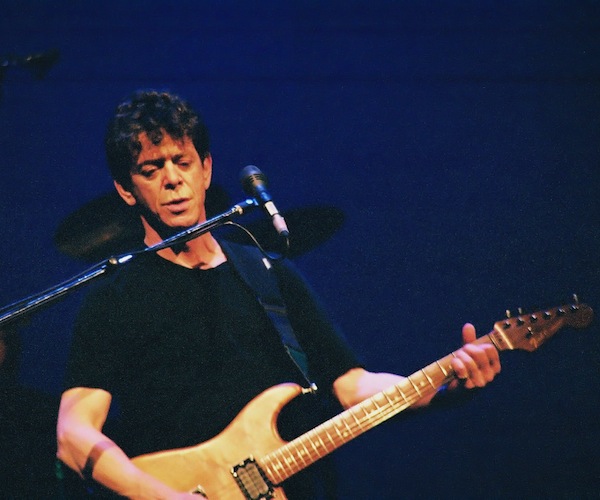Fuse News: R.I.P. Lou Reed
Even if the Velvet Underground never existed, Lou Reed would still be remembered as one of the greatest songwriters of his or any era.
By Adam Ellsworth
It’s easy to go overboard when someone you’ve admired for so many years dies, so I’ll try to keep this brief.
I will say that the first time I heard the line “When I’m rushing on my run, and I feel just like Jesus’s son” was a life changing experience. I was fourteen years old, and I while I had no idea what the lyric meant, I knew enough about rock music by then to know that this was not exactly “love, love me do.” At the time, I didn’t know the name of the song (“Heroin”) but I did know it was by some band called the Velvet Underground. I tucked this information away until my next trip to the CD store, where I purchased The Best of the Velvet Underground: Words and Music of Lou Reed. Listening to that compilation for the first time also proved to be a life changing experience.
I no longer remember whether or not I knew prior to my purchase that Lou Reed, who died Sunday at the age of 71, was a member of the Velvets, but I’m sure I knew who Reed was. After all, I listened almost exclusively to classic rock radio during my early teen years, and Reed’s 1972 solo song “Walk on the Wild Side” was, and remains, a staple of the format. While there are many “better” songs in Reed’s oeuvre, both from his solo and his Velvet Underground years, “Walk on the Wild Side” is the one most people are going to remember. That’s fine. Based on “Wild Side” alone these people will know that Lou Reed was a man who pushed boundaries and helped inject a more literary sensibility into rock and roll. Somewhere along the way, he even helped invent what we now call “alternative” music.
I only saw Reed in concert once, in the summer of 2003 at the Calvin Theatre in Northampton, MA. His set featured a few Velvet Underground tunes, including an especially memorable take on “All Tomorrow’s Parties.” Mostly though, he played songs from his post-Velvets years; a fact which initially disappointed me more than I’d like to admit. Still, even as the show was taking place I had to concede that solo songs like “How Do You Think it Feels,” “The Day John Kennedy Died,” “Set the Twilight Reeling,” and (perhaps most of all) “Dirty Blvd” are stunningly brilliant, and as strong as anything Reed wrote and recorded with the Velvets. If that band never existed, Lou Reed still would be remembered as one of the best songwriters of his or any era.
Reed was scheduled to play Coachella this past April, and, because I was going to the festival, I was excited to see him. When he cancelled his appearance in late March, citing “unavoidable complications,” I was disappointed, but figured I’d just see him the next time he toured. In June, some light was shed on the Coachella cancellation when it was announced that Reed had recently received a liver transplant, but was doing well. Around this same time, he wrote a controversial (though entertaining in its own way) review of the Kanye West album Yeezus for The Talkhouse. It seemed that while Reed had had a very real health scare, he was going to make it. This unfortunately turned out not to be the case.
Adam Ellsworth is a writer, journalist, and amateur professional rock and roll historian. His writing on rock music has appeared on the websites YNE Magazine, KevChino.com, Online Music Reviews, and Metronome Review. His non-rock writing has appeared in the Worcester Telegram and Gazette, on Wakefield Patch, and elsewhere. Adam has a MS in Journalism from Boston University and a BA in Literature from American University. He grew up in Western Massachusetts, and currently lives with his wife in a suburb of Boston. You can follow Adam on Twitter @adamlz24.

